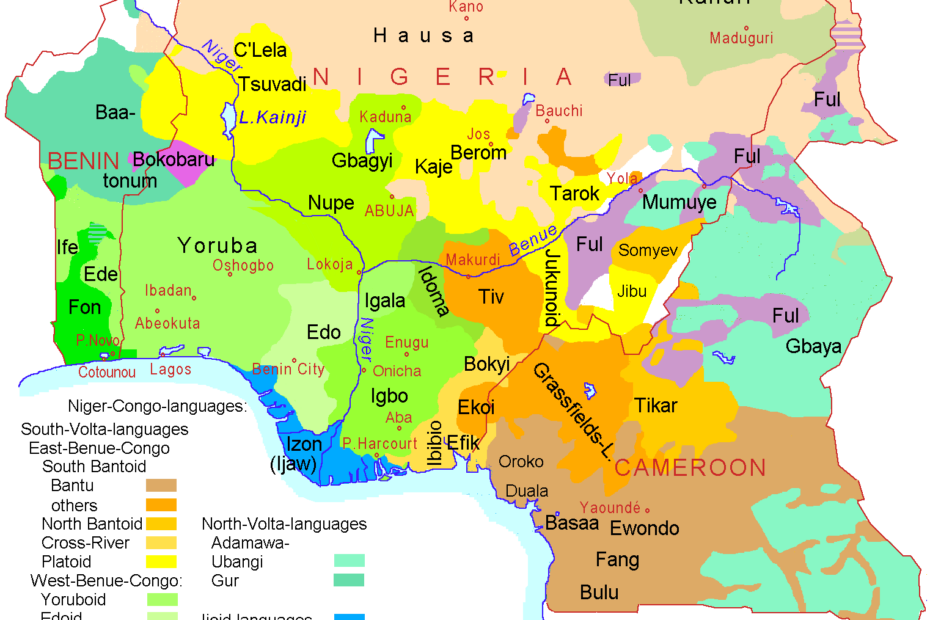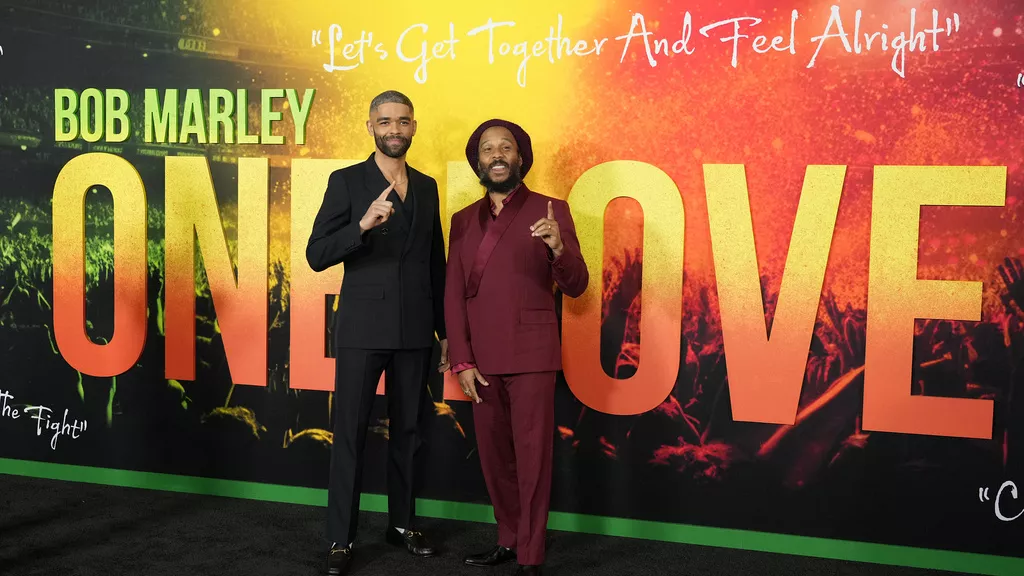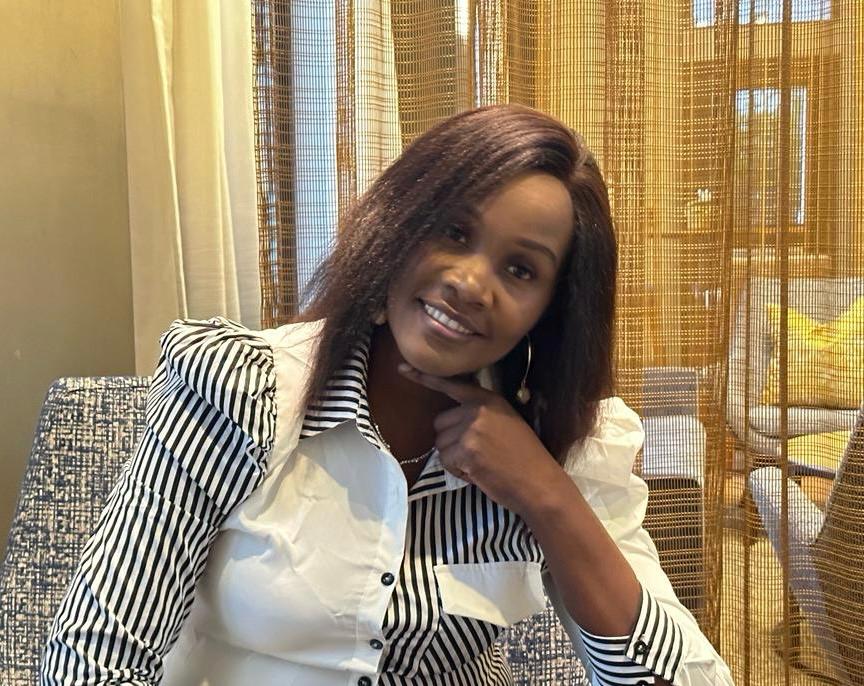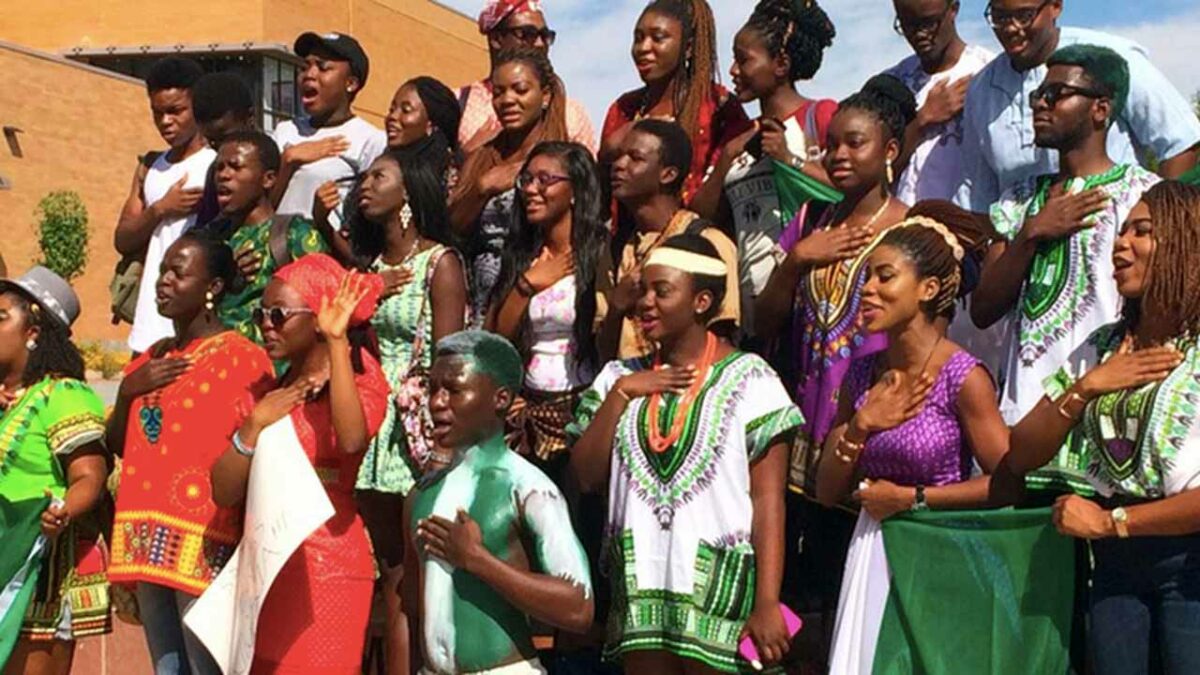
Meet Nigeria, the Giant of Africa! A country with diverse cultures, butterfly species, and a vibrant movie and film industry. Curious about the languages spoken there? Do you know how many languages Nigeria has? Well, Nigeria boasts over 525 languages, making it one of the most linguistically diverse nations globally. This ranks Nigeria as the third country worldwide with the highest number of spoken languages. So, what are the most spoken languages in Nigeria? Let’s have a look at Discover the most linguistically diverse country Nigeria!
So, what are the Most Spoken Languages in Nigeria?
In Nigeria, Hausa, Igbo, and Yoruba are the main languages, but there are lots of other tribes and groups with their ways of speaking. Some people think many Nigerian languages might have become distinct, a point many deny. With 200 million people, English isn’t the only language here. Nigeria’s population is huge, over 160 million, and has different cultures and languages. English is the most common language, but like in many diverse countries, some languages remain popular than others.
1. Hausa
Hausa is Nigeria’s most spoken language, strongly associated with the Islamic community and even used within the Nigerian army. Considered part of the Afroasiatic language group, Hausa boasts the highest number of speakers, around 19 million natives. It currently holds the top spot as Nigeria’s most popular language. Hausa has various dialects, distinguished by differences in tones, consonants, and vowel sounds. There’s Eastern Hausa, known as “Guddiri,” alongside Western, Southern, and the widely used Kano Hausa, considered the general dialect.
Hausa, a Nigerian language, is common in Northern Nigeria. It’s important to know that while not everyone in the North is Hausa, nearly everyone there understands and speaks it. Around 18.5 million Hausa speakers live in states such as Sokoto, Kaduna, Katsina, Kano, Bauchi, Jigawa, Zamfara, Kebbi, and Gombe. International radio stations like the BBC, China Radio International, and Voice of Russia also use Hausa for broadcasting.
2. Igbo
Igbo is Nigeria’s second most spoken language, boasting around 23 million native speakers. It belongs to the Niger-Congo language family, marked by varied high-pitched and low-toned sounds that distinguish different grammatical meanings from other Nigerian languages.
Given the expansive Igbo-speaking community, they have several dialects, identified by accents yet understood by most residing in the southeastern region. Some Igbo dialects include Idemili, Owerri, Bende, Ngwa, Umuahia, Onitsha, and more. States like Anambra, Abia, Ebonyi, Enugu, and Imo, and in parts of Akwa Ibom, Rivers, and Delta states, speak Igbo. Quite a few Igbo speakers reside in Cameroon, and although it’s a minority language, it’s in Equatorial Guinea.
3. Yoruba Third Most Spoken Language in Nigeria
Yoruba, the native language of the Yoruba tribe, ranks as Nigeria’s third most popular language. Discover the most linguistically diverse country in the world: Nigeria! It is prevalent among people from the western region. It’s a major language spoken in Nigeria’s southwestern geopolitical zone and also in parts of Benin and Togo in West Africa.
Descended from Oduduwa, the Yoruba community hosts an estimated 20 million people within its territory. States constituting the Yoruba land in southwestern Nigeria encompass Oyo, Ogun, Ekiti, Ondo, Lagos, Osun, and parts of Kwara state. Within Yoruba-speaking regions, various dialects exist; for instance, natives in Ibadan speak differently from those in Ondo or Abeokuta. Yoruba is spoken in states like Lagos, Oyo, Ondo, Ogun, Osun, Kwara, Ekiti, and some parts of Kogi State. Yoruba is widely spoken by Nigerian immigrants in the United Kingdom and the United States, contributing to its status as one of the most popular Nigerian languages worldwide.
4. Fulfide
Fulfulde is primarily spoken by the Fulani tribe in Nigeria’s northern regions, known mainly for cattle herding and a nomadic lifestyle. This West African language, also called Fulani, is spoken by the Fula people across Northern Nigeria and extends into Senegal, Cameroon, and Sudan, edging toward the Arab world.
It’s important to note that despite similarities, Fulfulde and Hausa are distinct languages. Additionally, there are different dialects among Fulfulde speakers: the western part uses Pulaar or Poular, while the eastern part uses Fulfulde. Approximately 1.7 million speakers of Fulfulde are found in areas like Zaria, Katsina, Kano, Jos, Bororo, Sokoto, and Maiduguri.
5. Kanuri among the Most Spoken Languages in Nigeria
More than 7 million people speak this well-known Nigerian language, including Nigerians as well as individuals from Chad and Cameroon. Kanuri differs significantly from Hausa, the predominant language in northern Nigeria, especially in terms of culture and accents. The speakers of Kanuri largely trace their origins to the Central Saharan tribe. With around 2.5 million speakers, Kanuri stands as one of Nigeria’s most spoken languages. It’s spoken in states like Jigawa, Yobe, and Borno.
6. Nigerian Pidgin
Nigerian English Pidgin is a language spoken in Nigeria, blending local tongues with English. It’s a fusion of various Nigerian languages, making it imaginative and distinct. Pidgins stand out for their flexibility, being both formal and casual as needed.
In Nigeria, many folks speak their native languages, which might make non-native speakers uneasy. But if you’re visiting, don’t worry about the multitude of languages. Pidgin is the common ground that unites Nigerians and welcomes everyone.
Speaking Pidgin in Nigeria shows you can connect with anyone, no matter who you are. For foreigners, learning Pidgin demonstrates your willingness to blend in and be part of the country.
7. English as Nigeria’s Foreign Language
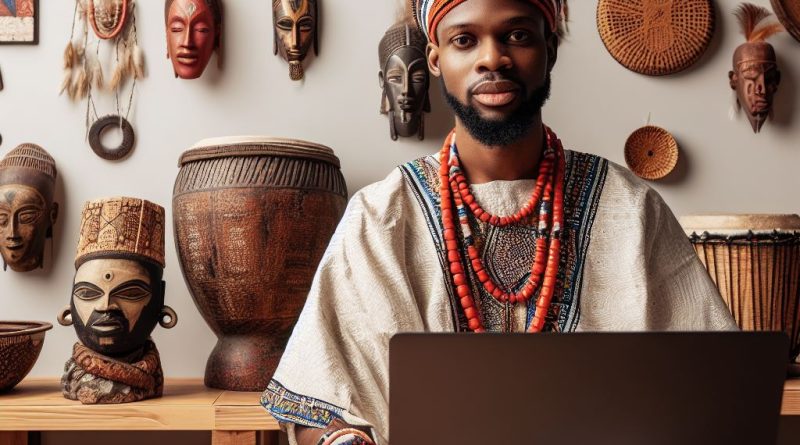
English became Nigeria’s official language during British colonial rule. It’s predominantly spoken in urban areas and less so among individuals with limited education. It’s commonly used in the education sector, and when transacting governmental affairs. However, it isn’t commonly spoken as a first language nationwide. For instance, only 1% of the northeastern population speaks English fluently. However, a staggering 60 million Nigerians use it as their second language. The oldest languages in Nigeria are the ones most people speak. Some popular ones are Nigerian Pidgin English, Nigerian Sign Language, Hausa Sign Language, and Bura Sign Language.
8. Tiv
Tiv is spoken in the most linguistically diverse country Nigeria. Spoken by nearly 2 million people in Nigeria, Tiv is predominantly heard in Benue State. However, it’s also commonly spoken in Plateau and Taraba states.
9. Ibibio
The native Ibibio speakers, numbering 1.5 million, are mainly found in Akwa Ibom state. Ibibio is taught in schools and frequently heard on radio and TV broadcasts in Nigeria.
10. Edo
With a minimum of 1 million first-language speakers in Edo State, Edo has roots tracing back to Igodomigodo, which eventually transformed into the Benin Empire.
11. The Ijaw Language is among the most linguistically diverse country Nigeria!
Bayelsa, Delta, Ondo, and Ekiti states, use the Ijaw language predominantly. It has several dialects that have emerged from the original language, such as Arogbo, Egbema, Ikibiri, and West Tarairi, totaling around 30 mutually understandable dialects
Bottomline
The usage of these popular Nigerian languages has faced a decline, with some at risk of extinction due to the influence of Western culture. Igbo, the primary language in southeastern Nigeria, extends its influence beyond states like Abia, Anambra, Ebonyi, Enugu, and Imo, reaching parts of Akwa Ibom, Delta, and Rivers states. Yoruba, native to southwestern Nigeria, finds its stronghold in states like Oyo, Ogun, Ondo, Osun, Kwara, Lagos, and segments of Kogi State.
Fulfulde, also known as Fulani, is common among pastoralists primarily in Northern Nigeria. It encompasses about 1.7 million speakers across regions like Kano, Katsina, Zaria, Jos Plateau, Bororo, Maiduguri, and Sokoto. Kanuri ranks among the most prevalent languages, spoken by inhabitants of Borno, Yobe, and Jigawa States.
Ijaw language thrives among communities in Bayelsa, Delta, Ondo, and Ekiti states, showcasing multiple dialects such as Arogbo, Egbema, Ikibiri, and West Tarairi, with approximately 30 mutually understandable variations. Nigerian Pidgin, a fusion of Nigerian ethnic languages and English, serves as a widespread lingua franca across the nation. Tiv, spoken predominantly in Benue State, is also widespread in Plateau and Taraba states.
Ibibio is predominant in Akwa Ibom State and taught in schools while accessible through radio and television programs. Edo, primarily spoken by the Bini people of Edo State, offers an intriguing learning opportunity for those interested.

